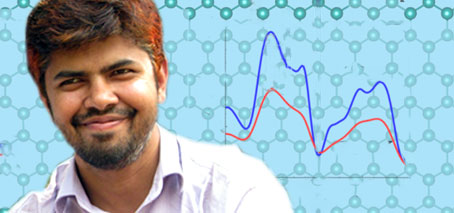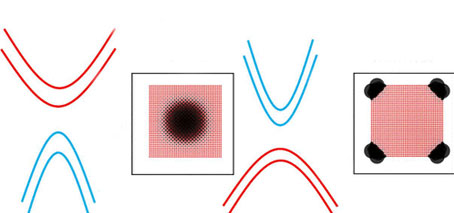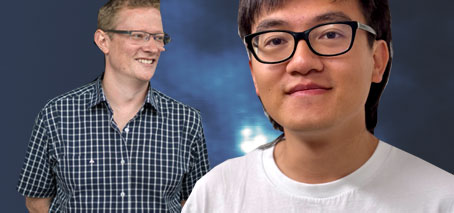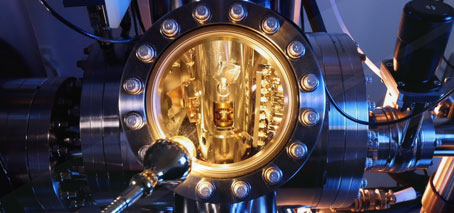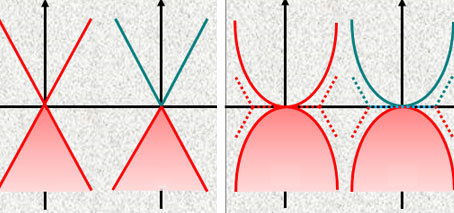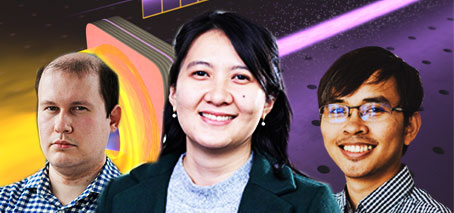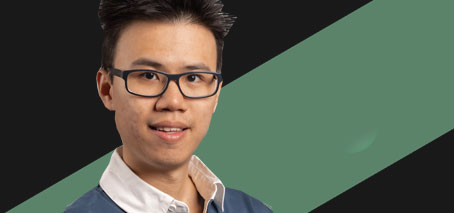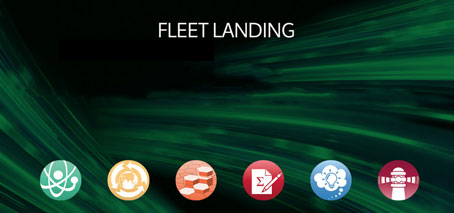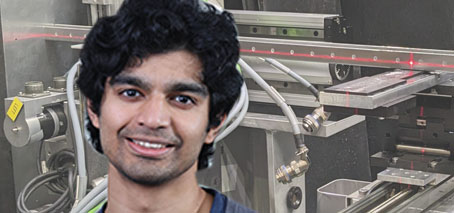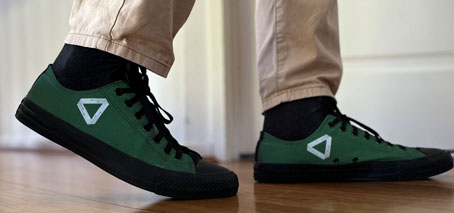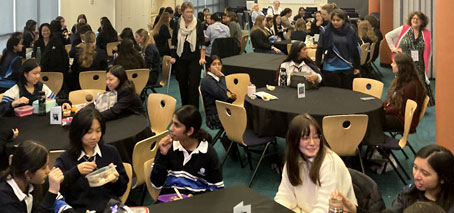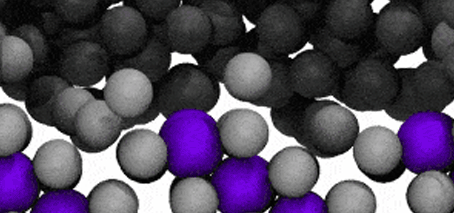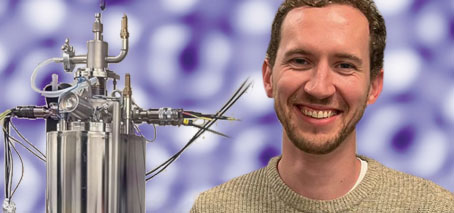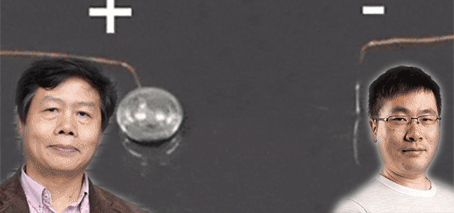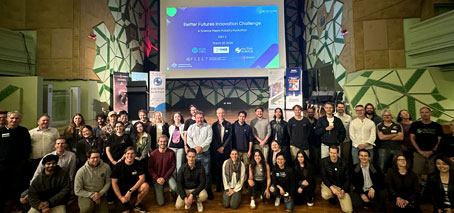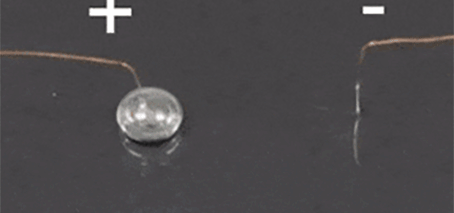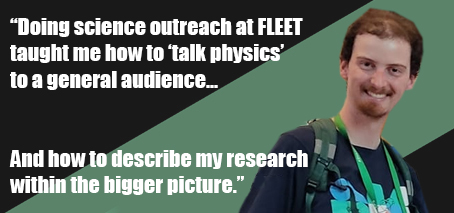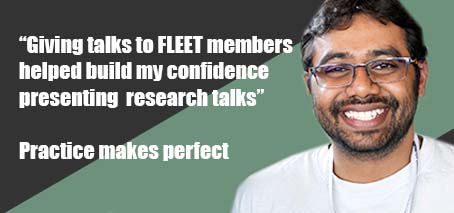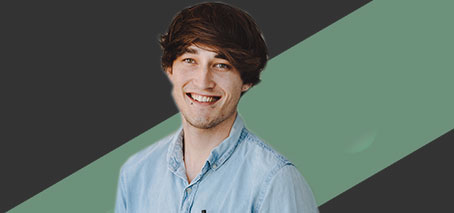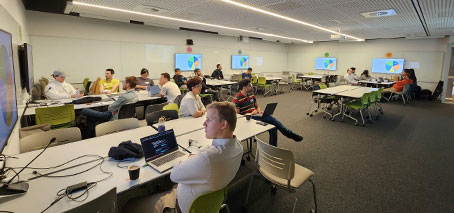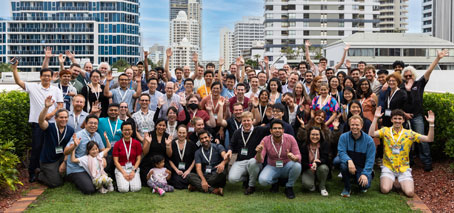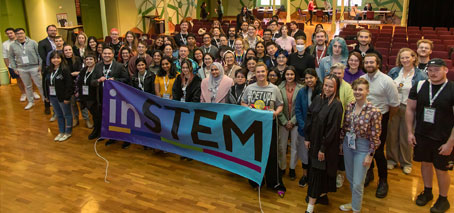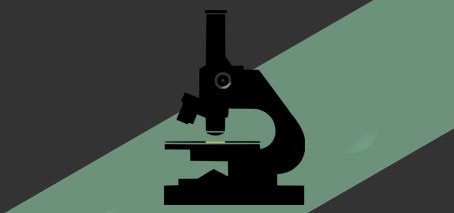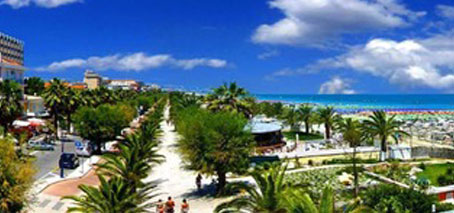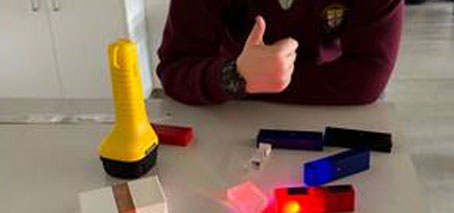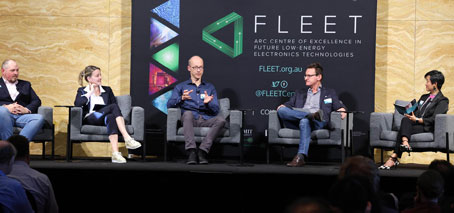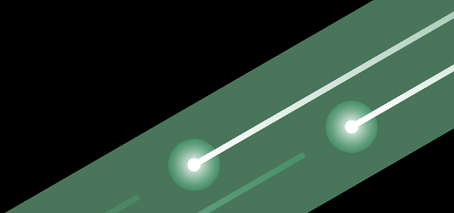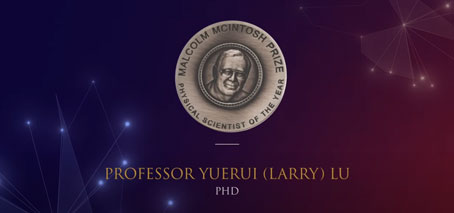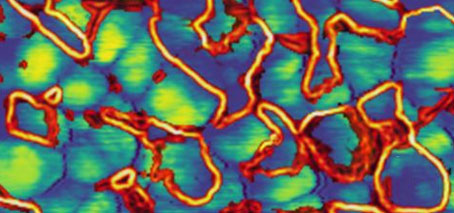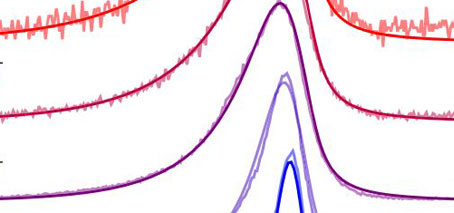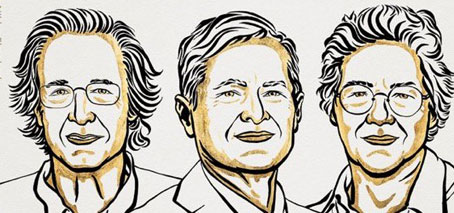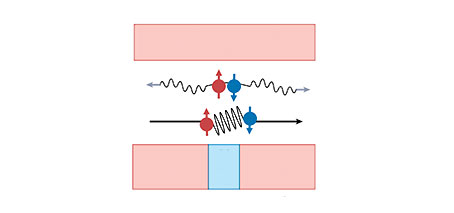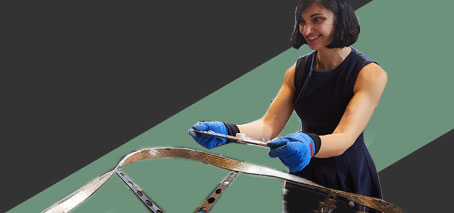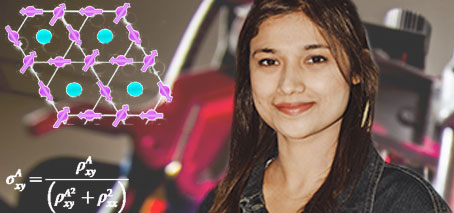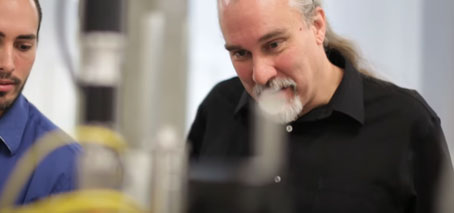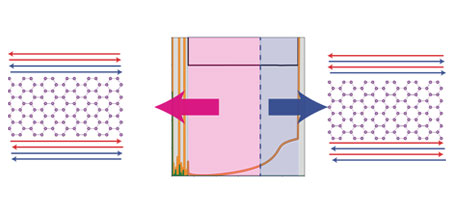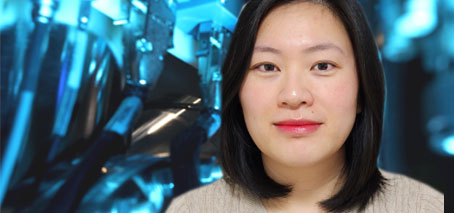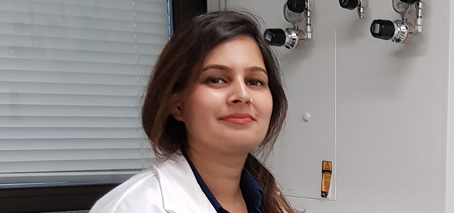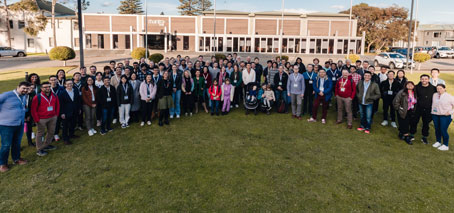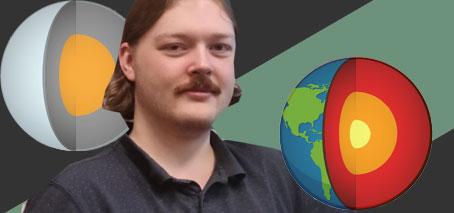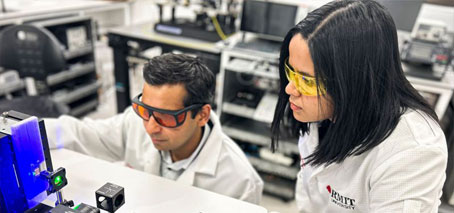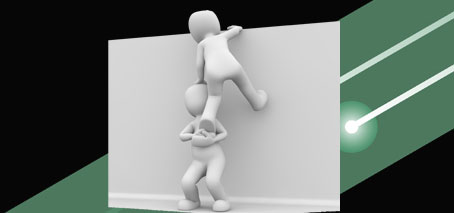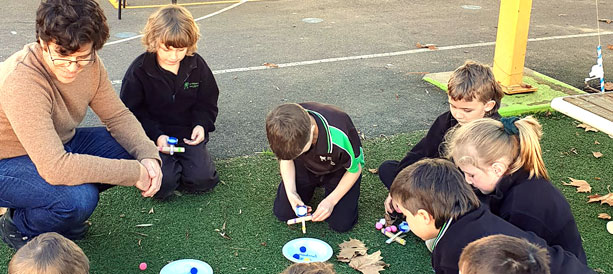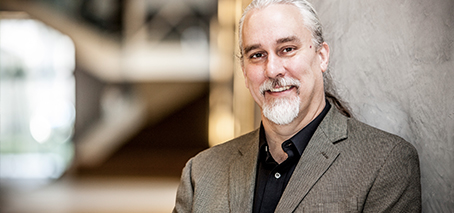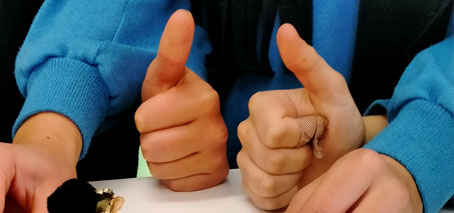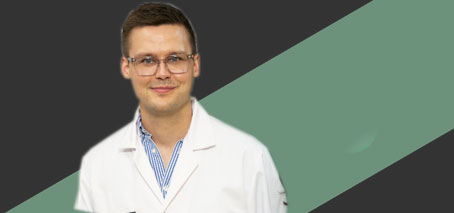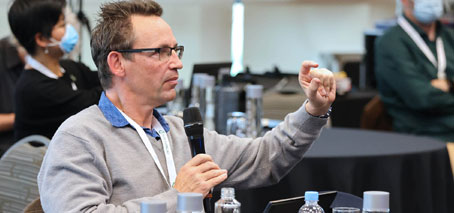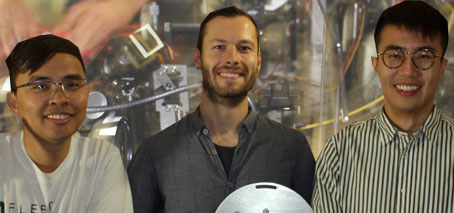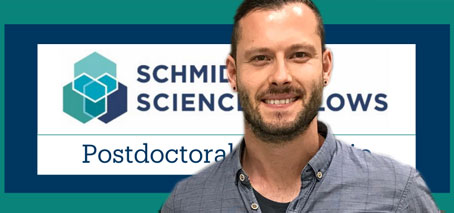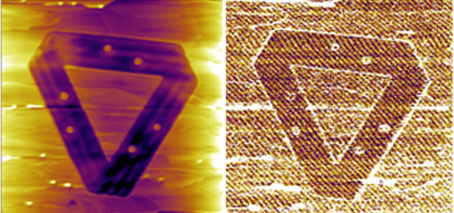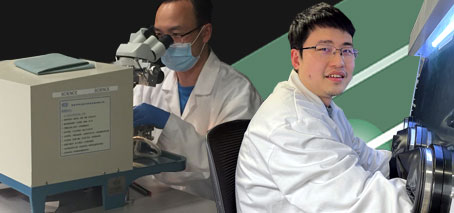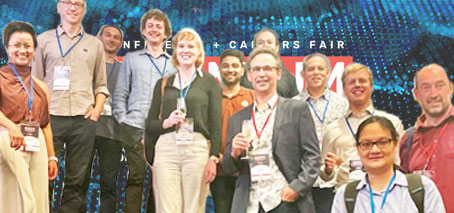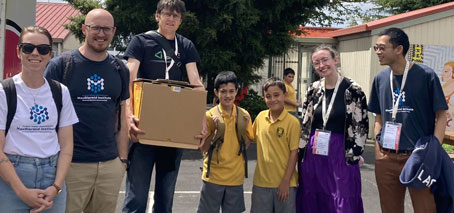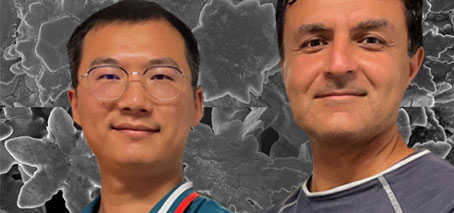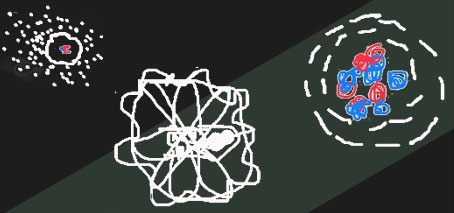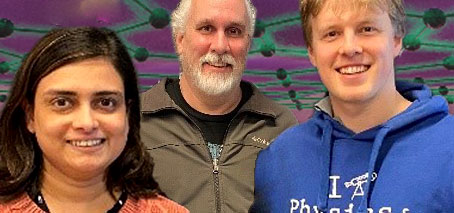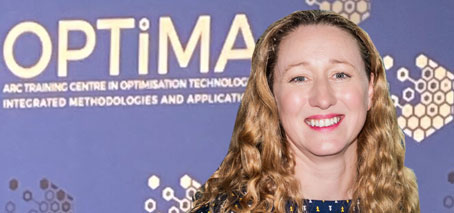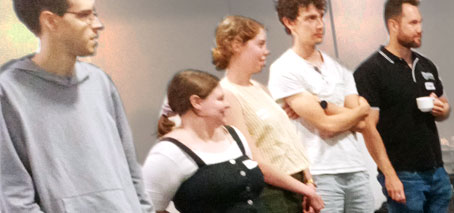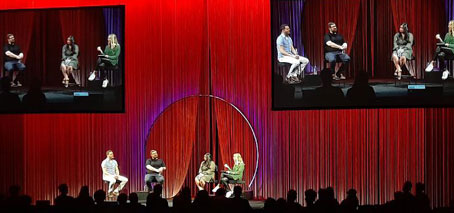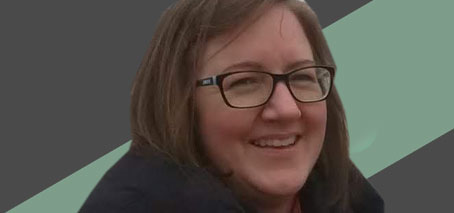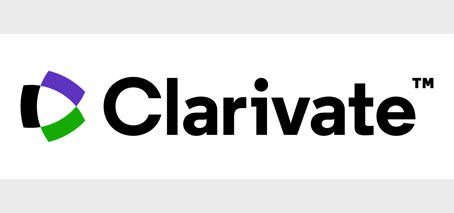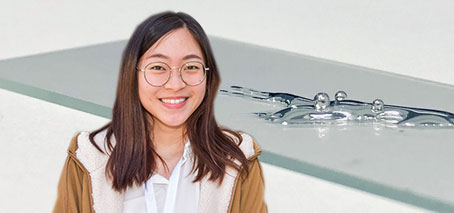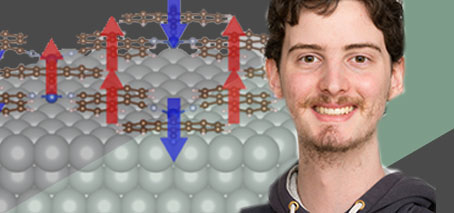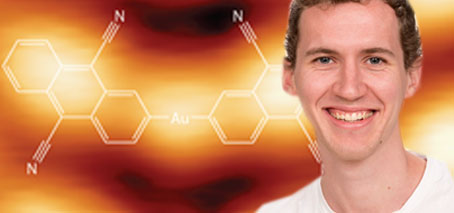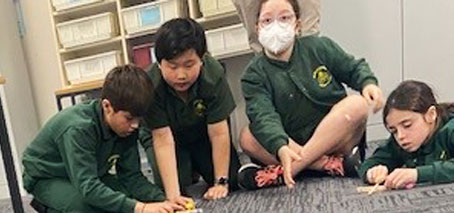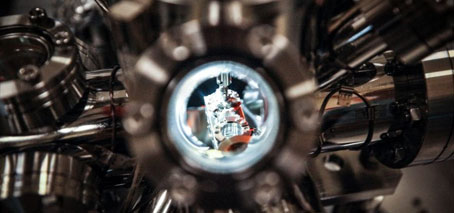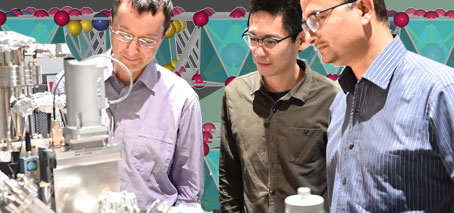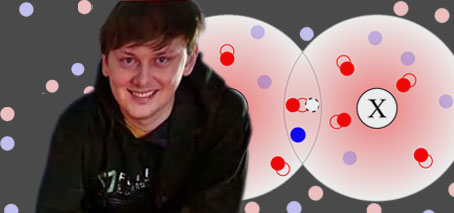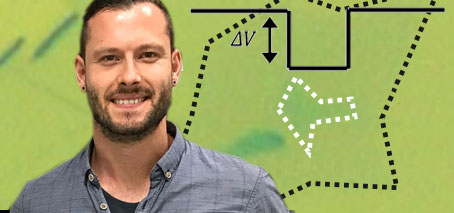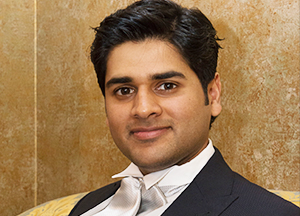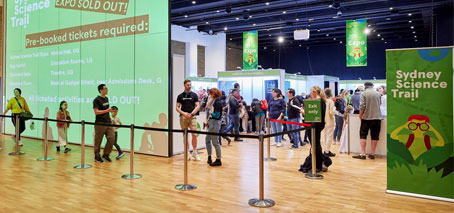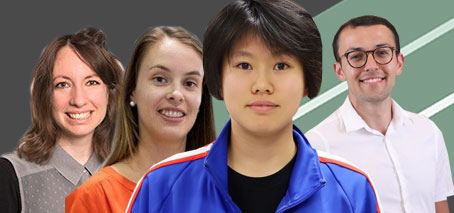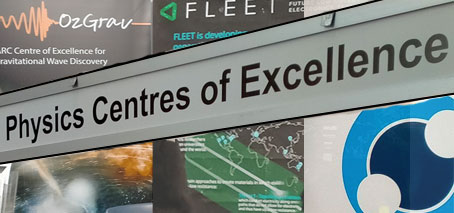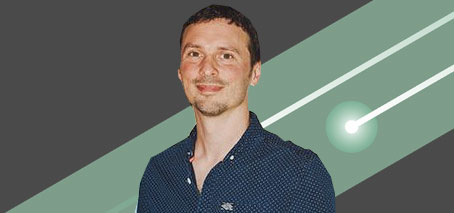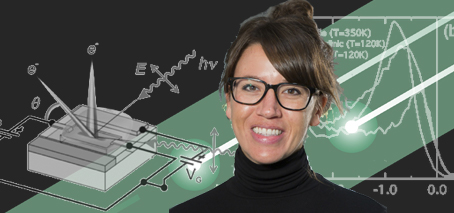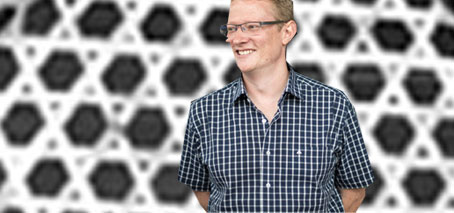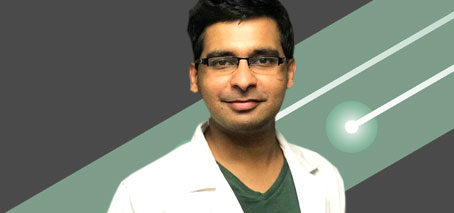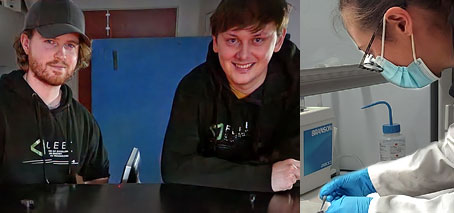Topological insulators raise the exciting the hope of realising lossless energy transport, which is true at ultralow temperatures. However, topological insulators fail to maintain this lossless ‘magic’ at room temperature. Researchers from Monash University, part of the FLEET Centre, have uncovered new insights into the efficiency of topological insulators, illuminating the significant disparity between their magic lossless energy transport at …
FLEET researchers unveil new approach to magnetic topological insulators
Researchers from Monash University, part of the FLEET Centre, have revealed a generic approach towards intrinsic magnetic second-order topological insulators. These materials are crucial for advancements in spintronics, an emerging field aiming at using spin degree of freedom to deliver information. Background Two-dimensional ferromagnetic semiconductors, such as CrI3, Cr2Ge2Te6, and VI3, have been extensively studied in recent years. These materials …
Overcoming magnetic disorder: towards low-energy topological electronics
Overcoming magnetic disorder is key to exploiting the unique properties of QAH insulators. The Monash-led team demonstrated that the breakdown in topological protection is caused by magnetic disorder, explaining previous observations that topological protection could be restored by application of stabilising magnetic fields. “The study paves a clear research pathway towards use of MTIs in low-energy topological electronics,” says …
Scanbot: Streamlining materials research with STM automation
Automating time-consuming tasks to fast-track materials research A new open-source software package developed by Monash University researcher Julian Ceddia aims to significantly streamline the study of materials using Scanning Tunnelling Microscopes (STMs). The software, named Scanbot, automates the time-consuming probe optimisation and data acquisition processes essential for STM experiments, helping to accelerate 2D materials research by enabling detailed investigation after …
Spin Gapless Semiconductors: Pioneering future of quantum materials and quantum technologies
FLEET researchers from the University of Wollongong have revisited the concept of spin gapless semiconductors (SGSs), one of the most fascinating materials classes in quantum condensed-matter physics, originally proposed by Xiaolin Wang in 2008. In SGSs, low energy bands constitute a spin gapless energy-momentum dispersion. I.e., gapless spectrum in one of the spin sectors, while a gapped spectrum in the …
FLEET News
FLEET News in June 2024 was the final edition of the regular monthly newsletter and included FLEET landing event, ways for members and affiliates to stay in touch (Friends of FLEET), upcoming conferences and more. Unfortunately, with the old FLEET website having been archived, you’ll find that internal story links inside the newsletters will no longer work. To repair them, …
Ultra-high spectral purity revealed in exciton-polariton laser
Ground-breaking research revealed the ultra-narrow linewidth of a novel type of laser that operates without population inversion. Exciton-polariton lasers, renowned for their low-power operation, have long tantalised researchers with their promise for practical low-energy applications. However, until now, a clean measurement of the laser’s linewidth, or spectral purity, has remained elusive. “The spectral purity is one of the defining characteristics …
Dark excitons shed new light on matter
A team of Monash researchers have uncovered for the first time the full effects of interactions between exciton-polaritons and their associated dark excitonic reservoir. Exciton-polaritons (‘polaritons’, for short) are hybrid mixtures of light and matter that inherit the best properties of both. They form in semiconductors sandwiched between two mirrors, through which a laser is shone. “Polaritons capture useful properties …
FLEET Landing celebrates Centre achievements
Around 140 FLEET members, friends and partners gathered at Monash this week at the FLEET Headquarters to celebrate the Centre’s achievements. Funded in 2017, FLEET was officially launched at the same venue, Monash New Horizons Centre, on 12 June 2018. Guests include current members, alumni, collaborators and stakeholders, all of whom have contributed and supported FLEET in its seven-year journey. …
Sangeet Kumar inaugural FLEET intern
Sangeet Kumar was the inaugural intern for the FLEET internship program, working at ANSTO, performing neutron reflectrometry experiment to study ion-beam modified 2D materials. Sangeet reports back on whart he learned: “I recently finished my two-month FLEET ANSTO internship at Lucas Heights, NSW. I’m grateful for the financial support provided by FLEET as an additional stipend, and for ANSTO’s support …
The FLEET Branding Journey
We love the iconic FLEET logo, and so do our members, who have enjoyed wearing it on hoodies, T-shirts and face stickers, working it into scientific experiments, and outreach apparatus. What’s the secret of a great logo? For us, it was involving a large team, being clear about what we wanted to do, and why, and iterating back and forward …
Sue Coppersmith completes first leg of 2024 Women in Physics tour
FLEET AI Prof Sue Coppersmith (UNSW) kicked off her AIP Woman in Physics national tour this month in Victoria. Sue introduced over 250 students, teachers and public to the life of a theoretical physicist at five events around Melbourne. The busy three day schedule included: A public lecture at RMIT aimed at a physics-savvy public audience. Girls in Physics breakfast …
Surfaces on the move: dynamic liquefaction
The boundary between solid metal and liquid metal can be much less ‘solid’ than we ever suspected. RMIT researchers have discovered that the liquid-solid boundary can fluctuate back and forth, with metallic atoms near the surface breaking free from their crystal lattice. Observing a metal-alloy mass solidifying in a sea of liquid metal, the team was able to observe a …
When does a conductor not conduct? Switching a 2D metal-organic framework from an insulator to a metal
A switchable material based on electron-electron interactions. An Australian-led study has found unusual insulating behaviour in a new atomically-thin material – and the ability to switch it on and off. Materials that feature strong interactions between electrons can display unusual properties such as the ability to act as insulators even when they are expected to conduct electricity. These insulators, known …
Liquid-metal transfer from anode to cathode without short circuiting
University of Wollongong researchers achieved a significant milestone in novel soft-matter transport by demonstrating the transfer of liquid metal from an anode to a cathode without creating a short circuit, defying conventional expectations. The team led by Prof Xiaolin Wang unveils a method where liquid-metal (specifically gallium-based, room temperature liquid metal) anodes can flow towards cathodes with a small electrical …
Better Futures Industry Challenge 2024
Faster ways to respond to emergencies and ultra-sensitive quantum seismometers for earlier detection of earthquakes, were two ideas that emerged from teams of intrepid researchers from five Centres of Excellence who competed in the inaugural Better Futures Innovation Challenge to solve critical industry problems. Industry partners for the deep-tech hackathon had access to researcher skills spanning the fields of physics, …
FLEET alums and members value ‘soft’, transferable skills, and community
It is not just technical and scientific skills that set up FLEET graduates for future career success. Surveying alums and current members reveals the impact of technical and transferable skills gained in the Centre. FLEET is on a mission to develop the next generation of science leaders. In the nearly seven years since FLEET began we have trained over 100 …
Pioneering study achieves liquid-metal transfer via electrical current
first published at the University of Wollongong In a ground-breaking discovery, University of Wollongong (UOW) researchers, have reached a new milestone in soft-matter transport. The team, based at the UOW node of the ARC Center of Excellence in Future Low Energy Electronics Technology (FLEET), has successfully demonstrated the transfer of liquid metal from an anode to a cathode without short circuiting, defying …
Alumni interview: Bernard Field
Bernard Field was one of the earliest of FLEET PhD students, joining the Centre in 2018 originally as an Honours student, then a PhD student in 2019 under Agustin Schiffrin and Nikhil Medhekar. His PhD research focused on correlated electrons in a frustrated 2D lattice, within FLEET’s theme 1. We interviewed Bernard about his career path after leaving FLEET (he …
Alumni interview: Dhaneesh Kumar
Dhaneesh Kumar was one of the original cohort of FLEET PhD students when the Centre was launched in 2017. We interviewed Dhaneesh about his career path after leaving FLEET (he completed his PhD in May 2021), and how he has used his technical and collaboration training at FLEET in his new position as a postdoc at the Max-Planck Institute for …
Where are they now? Oliver Paull
Oliver Paull was one of the original cohort of FLEET PhD students when the Centre was launched in 2017. We interviewed Oliver about his career path after leaving FLEET (Oliver completed his PhD in July 2022), and how he has used his technical and collaboration training at FLEET in his new position as a postdoc at Unité Mixte de Physique, …
FLEET ECR workshop developing transferrable skills (and bowling)
The FLEET Students and ECRs working group organised a workshop at UNSW on the 19th and 20th of October for FLEET early career researchers (ECRs) and students. Over two days, invited speakers shared lessons and experience on diverse skills essential for a researcher’s career development, such as profile building, science communication, mental health, and academic writing. On the first morning, …
FLEET Legacy Meeting
FLEET members gathered in Surfer’s Paradise Queensland recently for the Centre’s final meeting. The FLEET Legacy Workshop celebrated seven years of transformative innovation, capacity building, and future STEM leaders development. Presentations by Governance Chairs, Centre leaders and early-career researchers covered research highlights across the Centre, as well as innovations in STEM equity, skills development, and outreach. Some impressive stats over …
inSTEM 2023 : addressing disability, chronic illness & mental ill-health
The second inSTEM conference took place in Melbourne, 19–21 September 2023, at RMIT’s iconic Storey Hall. (Story by EQUS Communications & Engagement Manager, Dr Kristen Harley) inSTEM is a networking and career development conference for people from marginalised or underrepresented groups in STEM, and their allies. Originally developed by ARC Centre of Excellence for Engineered Quantum Systems (EQUS)’ EQUIP committee, …
Infrastructure funding for FLEET researchers
This month’s ARC infrastructure funding round saw FLEET researchers across five universities on teams awarded additional funding towards research facilities, including significant new imaging resources in South Australia and NSW. Pankaj Sharma, initially a FLEET Research Fellow at UNSW and now a Centre AI at Flinders University (South Australia), will help develop new, state-of-the-art atomic force microscopy (AFM) facilities for the …
Advancing Aus-Europe exciton physics links
The FLEET-EU 2023 Conference : Transport in exciton condensates and exciton insulators took place on September 11, 2023 in San Benedetto del Tronto, the art-deco resort town known as the Riviera of the Palms situated on the Italian Adriatic coast. The conference was jointly organised by University of Camerino (Italy), University of Antwerp (Belgium), and FLEET, and covered a range …
Quantum atoms in regional Victoria outreach
FLEET took a road trip to Horsham in regional Victoria to introduce 100 Year 8 and 9 students to quantum physics and the colourful world of light. Year 8 students participated in range of hands-on activities such as the famous ‘Pepper’s Ghost’ visual illusion, and playing with lasers and prisms to understand reflection and refraction. Meanwhile Year 9 students took …
Meet FLEET innovation-and-industry event
An audience of around 90 gathered for the Meet FLEET event at UNSW earlier this month, comprising researchers, industry representatives and others. A major aim of the event was to serve as a bridge, fostering connections while providing industry professionals and researchers the opportunity to delve into collaborative research and development programs. Meet FLEET also showcased the Centre’s research capabilities …
ARC Discovery funding
This month’s ARC Discovery Project announcement saw FLEET research and researchers awarded additional research funding for ten projects building fundamental knowledge and strengthening Australia’s quantum, photonics and nanotechnology ecosystems. See the Australian Research Council media release. Dimitrie Culcer (UNSW); Allan MacDonald. Filling a substantial knowledge gap in novel semiconductors that can function as sensors in a frequency range where conventional …
Yuerui (Larry) Lu wins Malcolm McIntosh Prize for Physical Scientist of the Year
Congratulations to Prof Yuerui Larry Lu (ANU), receiving the 2023 Malcolm McIntosh Prize for Physical Scientist of the Year—recognising his work in interlayer exciton pairs, paving the way for faster, more energy-efficient future electronics. Professor Lu was recognised for discovering interlayer exciton pairs, which can help to unravel the phenomenon of superfluidity. This discovery is paving the way for new …
Novel approach to advanced electronics, data storage with ferroelectricity
Published first at Flinders University Latest research from Flinders University and UNSW Sydney, published in the American Chemical Society ACS Nano journal, explores switchable polarization in a new class of silicon compatible metal oxides and paves the way for the development of advanced devices including high-density data storage, ultra low energy electronics, and flexible energy harvesting and wearable devices. The …
Solving quantum mysteries: New insights into 2D semiconductor physics
Researchers from Monash University have unlocked fresh insights into the behaviour of quantum impurities within materials. The new, international theoretical study introduces a novel approach known as the ‘quantum virial expansion,’ offering a powerful tool to uncover the complex quantum interactions in two-dimensional semiconductors. This breakthrough holds potential to reshape our understanding of complex quantum systems and unlock exciting future …
Nobel Prize for Ferenc Krausz in attosecond physics
Congratulations Prof Ferenc Krausz (MPQ) awarded the Nobel Prize in Physics today for his work in attosecond physics. Prof Krausz is the Director of the Max Planck Institute of Quantum Optics (MPQ). As a FLEET Partner Investigator, along with CI A/Prof. Agustin Schiffrin (Monash) and AI Nick Karpowicz (MPQ), Prof Krausz is involved in FLEET’s Research Theme 3, using ultrashort waveform-controlled laser …
Examining the superconducting diode effect
A collaboration of FLEET researchers from the University of Wollongong and Monash University have reviewed the superconducting diode effect, one of the most fascinating phenomena recently discovered in quantum condensed-matter physics. A superconducting diode enables dissipationless supercurrent to flow in only one direction, and provides new functionalities for superconducting circuits. This non-dissipative circuit element is key to future ultra-low energy …
Levitating superconductor and the desire for a socially responsible digital future
The public’s awe of FLEET’s levitating superconductor and engaging dialogue with FLEET at the 2023 Sydney Science Trail enabled a shift in public understanding about how society uses digital technology and a call for a socially responsible digital future. FLEET was one of more than 20 science organisations engaging audiences with interactive exhibits at the Sydney Science Trail Expo, developed …
Alumni profile: Quantum materials researcher Wafa Afzal
A note from previous FLEET PhD candidate Dr. Wafa Afzal, still researching novel materials, now at Archer Materials I was a PhD student at FLEET, based at the University of Wollongong under the supervision of Prof. Xiaolin Wang, studying the electrical and magnetic properties of topological Weyl semimetals. I’m still researching novel materials, now in the Quantum team at Archer …
Science Academy video: Prof Michael Fuhrer FAA
Here’s the problem: the more we use computers, the more energy that’s required. Driven by a deep intellectual curiosity, Prof Fuhrer (Monash University) was drawn to science at an early age and now has a passion for mentoring the next generation of scientists, teaching them how it pays to be patient. New video out from the Australian Academy of Science, …
‘Topological gardening’ to achieve unexpected spin transport
‘Trimming’ the edge-states of a topological insulator yields a new class of material featuring unconventional ‘two way’ edge transport in a new theoretical study from Monash University, Australia. The new material, a topological crystalline insulator (TCI) forms a promising addition to the family of topological materials and significantly broadens the scope of materials with topologically nontrivial properties. Its distinctive reliance …
Listening to nanoscale earthquakes
A recent UNSW-led paper published in Nature Communications presents an exciting new way to listen to avalanches of atoms in crystals. The nanoscale movement of atoms when materials deform leads to sound emission. This so-called crackling noise is a scale-invariant phenomenon found in various material systems as a response to external stimuli such as force or external fields. Jerky material …
Hareem Khan: FLEET alum
Currently applying materials skills learned at FLEET/RMIT to improve solar technologies, at CSIRO Greetings from CSIRO! I was a PhD student at FLEET / RMIT from 2017 to 2020, working on the development of piezoelectric and sensing applications of atomically thin materials. “The thing I enjoyed most about FLEET, other than the technical aspects of my work, was the sense …
FLEET2023 annual workshop in Lorne
Just under 120 members, family and affiliates gathered in Lorne Victoria this month for FLEET’s 2023 annual workshop, which featured 35 scientific talks (over 60% of them by ECRs), 30 accompanying family (17 kids), a cultural celebration dinner, karaoke, quiz, lawn bowls, and lots of unstructured time for collaborative discussions. Invited presentations included: Nicola Gaston, MacDiarmid Institute Mateusz Król, Warsaw …
New funding to spark collaboration between industry and FLEET students
An exciting partnership between FLEET and APR-intern will fund new route to gain valuable ‘on the floor’ industry experience for FLEET PhD/Masters students, increasing job skills and leveraging Australian scientific expertise in industry, with funding supporting the placement of research students with industry partners. In addition to injecting fresh scientific and problem-solving energy into participating industry workplaces, the program will …
Space has gotten small with metallic, planet-like nanodroplets
Homogenous liquid-metal nanodroplets achieved with high-temperature molten salt Australian researchers put planets in the palm of the hand Liquid metal, planet-like nanodroplets are successfully formed with a new technique developed at RMIT University, Australia. Like our own Planet Earth, the nanodroplets feature an outer ‘crust’, a liquid metal ‘mantle’, and a solid ‘core’. The solid intermetallic core is the key …
Tiny device mimics human vision and memory abilities
First published at RMIT Researchers have created a small device that ‘sees’ and creates memories in a similar way to humans, in a promising step towards one day having applications that can make rapid, complex decisions such as in self-driving cars. The neuromorphic invention is a single chip enabled by a sensing element, doped indium oxide, that is thousands of …
Expanded mentoring program
A new expanded mentoring network vastly increases the experience pool available for ECRs and others in 12 participating ARC Centres providing: structured mentoring with ongoing support and oversight access to a range of resources and peer-mentoring groups large, diverse pool of mentors and mentees for both researchers and professional staff. Allowing members of the participating Centres to access mentors in …
Getting wavy: New FLEET Schools Forces and Energy resource goes from Newton to Einstein
Learning about ‘wavy’ stuff you can’t see, smell, taste or touch can test students’ intuitive understanding of the world. FLEET’s latest Forces and Energy teacher resource examines energy from the physics of Newton to Einstein, to the wavy behaviour of sub-atomic particles such as electrons. Students learn how energy is crucial to our understanding of how everything in the universe …
FLEET Director elected Fellow of the Australian Academy of Science
Leading materials physicist and FLEET Director Prof Michael Fuhrer has been recognised for his contributions to science, elected a Fellow of the Australian Academy of Science. Professor Fuhrer is one of 20 researchers elected as Fellow of the Australian Academy of Science, announced today. Prof Michael Fuhrer is an international leader in study of the electronic properties of 2D and …
Inspiring outreach, with bombs and light circuits
Teaching energy, releasing creativity, and inspiring future scientists FLEET and Monash volunteers used catapults, graphite circuits and diffraction goggles to create challenges for 250 Mater Christi College students competing to win their annual STEM Cup. For the STEM Cup challenge, which is judged on teamwork, innovation and communication, FLEET designed two hands-on workshops that got middle and senior secondary students …
New CI Torben Daeneke
FLEET is pleased to announce that Dr Torben Daeneke is now a Chief Investigator in FLEET. As a Scientific Associate Investigator in FLEET (RMIT node) since the outset of the Centre, Torben and has been a prodigious contributor to FLEET’s research effort as well as FLEET’s governance. “I welcome the opportunity to become a FLEET Chief Investigator,” says Torben. “I …
Alex Hamilton, new Industry Laureate Fellow
Unleashing the combined power of electrons and holes for better quantum computing Congratulations to FLEET Deputy Director Prof Alex Hamilton, who has been named an Industry Laureate Fellow by the ARC. Alex and his team at UNSW receive $3.8 million towards ground-breaking silicon-based quantum-computer technology to dramatically speed up computation, enabling Australia to maintain its global lead in quantum technologies. …
Hybrid particles surprise with negative mass
First published Australian National University A surprise observation of negative mass in exciton-polaritons has added yet another dimension of weirdness to these strange light-matter hybrid particles. Dr Matthias Wurdack, Dr Tinghe Yun and Dr Eliezer Estrecho from the Department of Quantum Sciences and Technology (QST) were experimenting with exciton polaritons when they realised that under certain conditions the dispersion became …
Congratulations Matthias Wurdack: Schmidt Science Fellow
Congratulations to Dr Matthias Wurdack (FLEET/ANU), who has received a Schmidt Science Fellowship to develop artificial retinas. Matthias started his’ PhD at ANU in 2018, working with FLEET CI Elena Ostrovskaya to create, investigate and engineer the properties of hybrid light-matter particles in atomically-thin semiconductors with the aim to realise room temperature superfluidity based on this material platform, and understand and elevate …
Combining irradiation and lithography to engineer advanced conducting materials
A process has been developed to engineer nanoscale arrays of conducting channels for advanced scalable electronic circuitry Using ion implantation and lithography, investigators created patterns of topological surface edge states on a topological material that made the surface edges conductive while the bulk layer beneath remained an insulator Low energy ion implantation, neutron and X-ray reflectometry techniques at ANSTO supported …
Engineering a novel supersolid state using layered 2D materials
Can a solid be a superfluid? Bilayer excitons form a quantum supersolid A collaboration of Australian and European physicists predict that layered electronic 2D semiconductors can host a curious quantum phase of matter called the supersolid. The supersolid is a very counterintuitive phase indeed. It is made up of particles that simultaneously form a rigid crystal and yet at the …
Destroying the superconductivity in a kagome metal
Electrically controlled superconductor-to-“failed insulator” transition, and giant anomalous Hall effect in the kagome metal CsV3Sb5 A new RMIT-led international collaboration published in February has uncovered, for the first time, a distinct disorder-driven bosonic superconductor-insulator transition. The discovery outlines a global picture of the giant anomalous Hall effect and reveals its correlation with the unconventional charge density wave in the AV3Sb5 …
FLEET represents at Quantum Australia
Written by Matt Gebert, FLEET PhD candidate, Monash University A large contingent of 14 FLEET members and alumni enjoyed the Quantum Australia conference last week, engaging in discussions about the future of quantum technologies with a lot of interest focused in quantum computing, in addition to sensing. I attended as a PhD student approaching the end of my candidacy, and …
Leadership training
Four FLEET researchers have received partial Centre funding to attend Women & Leadership Australia Impact program: PhD student Bianca Rae Fabricante (ANU) PhD student Patjaree Aukarasereenont (RMIT) Diversity in FLEET fellow Dr Mengting Zhao (Monash) Research Fellow Dr Amelia Dominguez (Monash) “FLEET’s strategic priorities include developing the next generation of science leaders, and fostering equity and diversity in STEM,” says …
Forging outreach relationships and taking nano and quantum to Rotorua schools
FLEET and MacDiarmid Institute members teamed up at the recent AMN10 conference in Rotorua NZ to conduct science outreach workshops for 320 local school students. Over four days, 25 volunteers from FLEET and partner organisation the MacDiarmid Institute visited seven schools and presented a variety of hands-on science workshops to students ranging from year 4 to 9, in a program …
Rural schools’ outreach
In 2022 FLEET extended outreach activities to a number of regional and remote schools. Such schools have limited opportunities to engage with visiting scientists, or to and participate with them in hands-on science workshops. Engagement with working scientists, and hands-on exercises, helps engage students’ curiosity, and exposes them to a greater breadth and depth of career opportunities in STEM and …
Turning up the heat on topological thermoelectrics: FLEET Translation funding towards new chemical synthesis
FLEET funding is supporting the next step in possible translation of thermoelectrics research towards commercialisation in future generators, electronics, vehicles, human-wearable and environmental sensors, and smart electronics Thermoelectric materials offer potential solutions to heat-management challenges common to many electronics technologies. Thermoelectrics are solid-state semiconductors that can convert heat gradients into useful electricity (known as the Seebeck effect). They can also …
Let it snow inside liquid metals
Liquid metals are enigmatic metallic solvents. A new UNSW-led study of metallic crystals growing in a liquid metal solvent finds similarities and differences between liquid-metal solvents and more-familiar crystal-growth environments (such as water or the atmosphere) in which snowflakes or crystals of dissolved substances form. We can dissolve a large amount of sugar in water at high temperatures. But as …
Creating a quantum spark in primary students
A FLEET Primary School pilot workshop showed primary students can learn and conceptualize quantum physics and are adept at the Mexican wave. Meanwhile, 155 Hughesdale Primary School students got their first introduction to quantum physics. The year 5 and 6 students explored the quantum atomic model via role-playing activities, applying this to understand how electricity and resistance work at the …
A shield for 2D materials that adds vibrations to reduce vibration problems
Ultra-thin, liquid-metal-printed oxide can improve performance of your transistor by suppressing vibrational resistance Counterintuitively, this occurs by adding extra phonons (vibrations) into the system This oxide can protect your transistor against further processing Monash University researchers have demonstrated a new, counterintuitive way to protect atomically-thin electronics – adding vibrations, to reduce vibrations. By ‘squeezing’ a thin droplet of liquid gallium, …
FLEET alum Charlotte Hurry, business manager at OPTIMA
Hi, I’m Charlotte! At FLEET I was the Executive Officer working as part of the Business Team. I really enjoyed the variety in the job – no two days were ever the same. These days, I’m the Business Manager for an ARC Industrial Transformation Training Centre, OPTIMA. Which mostly means I’m a project manager. The Centre runs for five years …
Developing research into impact at Idea Factory 2022
“It’s interesting to consider how to hold ourselves accountable to the taxpayers that ultimately fund scientific research.” Early-career researchers from two Centres of Excellence gathered in Queensland this month, learning how to better translate their scientific discoveries to make an impact. The focus of Idea Factory 2022 was expanded to develop a wider understanding of research translation, the translation/commercialisation ecosystem, …
Learning to see yourself in an entrepreneur role: Sunrise Innovation Festival
FLEET PhD candidate Maedehsadat Mousavi’s has reported in following attending the Sunrise innovation festival, building on her experiences at the EQUS-FLEET Idea Factory: “Previously, I would have never considered starting my own company or launching a start-up, but now I can see myself considering this future, and how an entrepreneur can have an impact on the world.” FLEET HDR students …
Zinc batteries, cheaper safer better: FLEET Translation Program
FLEET Translation funding is progressing zinc-ion battery technology, which offers decreased costs, safety, and improved environmental outcomes. Current commercial batteries are primarily based on lithium-ion technology, which is expensive and has significant safety concerns owing to incorporation of flammable organic materials. The proposed aqueous zinc-ion battery technology boasts improved safety (no toxic or flammable components), low-cost manufacturing, and recyclability. The …
Karen Livesey (Newcastle) is a Superstar of STEM
Theoretical physicist and FLEET AI Karen Livesey (University of Newcastle) has today been announced as one of Australia’s newest Superstars of STEM. She is one of 60 diverse, brilliant scientists, technologists, engineers and mathematicians who want to step into the media spotlight as STEM experts – officially announced today by the Minister for Industry and Science, Ed Husic. Dr Karen …
Kourosh Kalantar-zadeh and Stefan Maier top 1%
Congratulations to FLEET’s Kourosh Kalantar-zadeh and Stefan Maier, named in the top 1% by citations in their fields. The Clarivate Analytics list identifies researchers ranking in the top 1% by citations for their field. The citation identifies influential researchers as determined by their peers around the globe – those who have consistently won recognition in the form of high citation …
FLEET translation: extending LED device lifetime with liquid-metal printed oxides
2D oxide-based LED encapsulation extending device lifetime FLEET translation funding is supporting the next step in a liquid-metal printing application with significant commercial promise, in a project being led by RMIT PhD candidate Patjaree Aukarasereenont. Light-emitting diodes (LEDs) play a crucial role in modern society – from mobile phones to LED billboards and home lighting, LEDs are ubiquitous. There are, …
Magnetism or no magnetism? The influence of substrates on electronic interactions
How substrates influence magnetism in 2D materials Interaction-induced magnetism in metal-organic frameworks on substrates A new study at Monash University illustrates how substrates affect strong electronic interactions in two-dimensional metal-organic frameworks. Materials with strong electronic interactions can have applications in energy-efficient electronics. When these materials are placed on a substrate, their electronic properties are changed by charge transfer, strain, and …
A chemical reaction as good as gold
Gold may hold the key to unlocking an elusive but highly desirable reaction pathway. A new Australian-led stud finds gold atoms could be key to unlocking organic reactions. Organic molecules are the building blocks for materials we use every day – from our clothes and coffee cups to the screen displays of our phones. Controlling reactions of these organic molecules …
Submission to the National Quantum Strategy: proposed framework
FLEET has made the following submission towards the proposed framework of Australia’s National Quantum Strategy. See Consultation Paper. The ARC Centre of Excellence in Future Low-Energy Electronics Technologies (FLEET; fleet.org.au) is a collaboration between Monash University, Australian National University, University of New South Wales, University of Queensland, RMIT, Swinburne University of Technology, and University of Wollongong, comprising around 200 leading …
Boom! Watch out below. FLEET take their energy and forces workshop to Hughesdale Primary School
By using and modifying catapults made from icy pole sticks and rubber bands, 270 primary students from Hughesdale Primary school learned about forces and energy and thought critically about FLEET’s research and why we are trying to develop energy efficient electronics. FLEET developed the Forces and energy workshop for Years 4-7 based on pilot workshops run with primary schools in …
Electron Liquids on the Cutting Edge
FLEET Investigator A/Prof Bent Weber, and his team at NTU Singapore, have demonstrated unprecedented control of a one-dimensional flow of electrons in a rare quantum state that physicists have sought to understand for over half a century. The technique suggests a path to more-robust and more-accurate quantum computers. From: Nanyang Technical University, Singapore As you walk in a crowded shopping …
A new era of two-dimensional ferroelectrics
A UNSW/Flinders University paper published recently in Nature Reviews Materials presents an exciting overview of the emerging field of 2D ferroelectric materials with layered van-der-Waals crystal structures: a novel class of low-dimensional materials that is highly interesting for future nanoelectronics. Future applications include ultra-low energy electronics, high-performance, non-volatile data-storage, high-response optoelectronics, and flexible (energy-harvesting or wearable) electronics. Structurally different from …
A drop in the sea of electrons: Understanding Fermi polarons and their interactions
Multidimensional coherent spectroscopy (MDCS) on monolayer WS2 reveals Fermi polaron interactions Phase-space filling drives new optical selection rules, where excitons compete for the same electron Identification of a novel, cooperatively-bound exciton-exciton-electron state Recent Australian-led research has provided a world’s first measurement of interactions between Fermi polarons in an atomically-thin 2D semiconductor, using ultrafast spectroscopy capable of probing complex quantum materials. …
Trapping polaritons in an engineered quantum box
High exciton-polariton density in an engineered quantum box Possible pathway to future, ultra energy-efficient technologies Australian researchers have engineered a quantum box for polaritons in a two-dimensional material, achieving large polariton densities and a partially ‘coherent’ quantum state. New insights coming from the novel technique could allow researchers to access striking ‘collective’ quantum phenomena in this material family, and enable …
New Chief Investigator Priyank Kumar
Congratulations to Priyank Kumar at the School of Chemical Engineering, UNSW Sydney, who becomes a new Chief Investigator within FLEET. “I look forward to contributing to the objectives of FLEET through both fundamental and translational research,” said Priyank. “I would like to thank Michael Fuhrer, Kourosh Kalantar-zadeh and the FLEET team for providing me this opportunity.” Priyank has been an …
Captivating physics and our digital society—Sydney Science Trail
More than 1000 high-school and primary students, and another 1100 members of the public were introduced to FLEET’s research and the counterintuitive world of quantum physics at Sydney Science Trail in July, in FLEET’s largest post-pandemic outreach event to date. FLEET UNSW members were among the 20+ science orgs presenting at Sydney Science Trail, based at Australian Museum as part …
Four new Research Fellows: increasing our team’s strengths with diversity
FLEET welcomes four new research fellows, working in disparate roles across the Centre and all contributing to the improved diversity that makes the Centre greater than the sum of its parts: Dr Emma Laird (UQ) Dr Yonatan Ashlea Alava (UNSW) Dr Mengting Zhao (Monash) Dr Grace Causer (Monash) The four new fellows were successful candidates among 35 applicants for the …
Critical Technologies submission
FLEET has made the following submission towards a review of Australia’s ‘critical technologies’, ie current and emerging technologies critical for Australia today (or could become critical within the next 10 years), aimed at giving Australia a clear competitive advantage, accelerating productivity growth, and creating well-paying jobs. The ARC Centre of Excellence in Future Low-Energy Electronics Technologies (FLEET; FLEET.org.au) is a collaboration between …
Teaching the teachers at CONASTA
FLEET has joined forces with two other ARC Centres of Excellence, Exciton Science and Ozgrav, at the 2022 Australian Science Teacher Conference (CONASTA) to engage primary and secondary educators about their research and educational resources. FLEET’s Senior Outreach Coordinator Jason Major conducted a professional development workshop at the event that informed and provided primary-early secondary teachers with the confidence to …
Congratulations A/Prof Jesper Levinsen
Congratulations to FLEET’s Jesper Levinsen, whose work has been recognised by the Monash University Faculty of Science, as he is promoted to Associate Professor. FLEET Associate Investigator Jesper Levinsen is a theoretical physicist researching strongly-interacting quantum systems at the interface between condensed matter physics and the physics of ultracold atomic gases in the Monash School of Physics and Astronomy. “I …
Julie Karel recognised for excellence in research and science outreach
Congratulations to FLEET’s Dr Julie Karel (Monash), receiving a Victorian 2022 Young Tall Poppy Science Award, recognising her research in functional amorphous materials for future ultra-low energy electronics, and in science outreach. The Young Tall Poppy awards, an initiative of the Australian Institute of Policy and Science, recognise excellence in research as well as enthusiasm for communicating science beyond the …
Future Fellowship Mark Edmonds
Kagome metals: From Japanese basket to next generation electronic devices FLEET AI Dr Mark Edmonds received an ARC Future Fellowship in this week’s announcement by the Minister. The new ARC Fellowship will support Mark’s work investigating a new type of 2D material that is very promising for faster, more energy-efficient future electronic devices. ‘Kagome’ metals have a topological non-trivial nature …
Automation takes the misery out of scanning microscopy: FLEET Translation Program
FLEET Translation Program funding to automate the ‘boring parts’ of STM experiments, freeing up operators’ time Monash PhD candidate Julian Ceddia has been awarded funding from the first round of the FLEET Translation Program to further develop the automation of Scanning Tunnelling Microscopes (STMs), based on previous work from the group of his supervisor, Agustin Schiffrin. STMs are capable of …
New FLEET Industry Relations Chair
FLEET is very pleased to report that Centre AI, Sumeet Walia at RMIT has been nominated by the FLEET Executive Committee to chair our Industry Relations Committee from Aug 2022, and has agreed to take on the position. The Centre Exec and Ops Team would like to thank Torben Daeneke for his leadership in the past two years as Chair …
What you see is what you get with pre-characterised TMDs: FLEET Translation Program
First project approved for FLEET Translation Program funding PhD candidates Mitch Conway, Abby Goff, and Jack Muir have recently been awarded $31,000 in FLEET’s first round of funding from the FLEET Translation Program (FTP). Their cross-node collaboration between Swinburne and RMIT aims to create a catalogue of high quality 2D materials, namely transition metal dichalcogenides (TMDs) and their heterostructures. …

